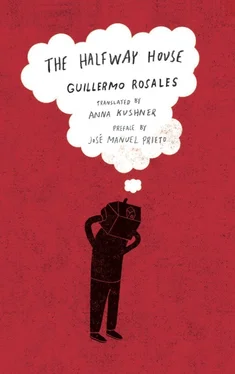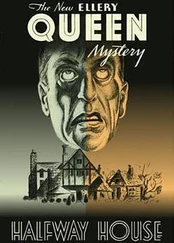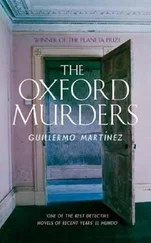Guillermo Rosales
The Halfway House
INTRODUCTION BY JOSÉ MANUEL PRIETO
It’s not difficult to see a parallel between the life Cuban writer Guillermo Rosales (Havana, 1946-Miami, 1993) led in the United States as an outsider to the American experience and the imagined existence of his alter ego William Figueras in a halfway house or “Boarding Home” as those came to be known in Miami. Rosales, a lifelong misfit who was diagnosed early on with severe schizophrenia, went into exile in 1979 with a history of mental illness. It wasn’t long before he descended to the only spot available to him, “one of those marginal refuges where the desperate and hopeless go.”
The time he spent in several of these institutions provided Rosales with the material to write the novel you have in your hands. The work itself, its powerful condemnation of the Dantean existence of the wards’ miserable existence under the complicit watch of deceitful managers, must be read in the light of his experiences. Rosales wished to unveil the existence of these infernos, writing about the many halfway houses allowed to operate so cruelly thanks to the indifference of a community focused on achieving the American dream, of refugees from Castro’s regime who may have continued to ponder their painful expulsion from Cuba but were determined to get ahead at all costs.
The novel’s halfway house is not, however, the efficient jail-like institution (representative of the oppressive state) that appears in Ken Kesey’s One Flew Over the Cuckoo’s Nest , a place governed by cleanliness and order. Rosales’ description of the “boarding home” is full of murky similes: toilets that are always “clogged with old shirts, sheets, curtains,” flooded again and again with “feces, paper and other filth”; the color of Arsenio’s skin, Curbelo’s sinister Lieutenant, is “dirty as puddle water,” while the eye of one of the nuts, Reyes, is oozing constantly. The place is a sort of sewer where misfits end up and are preyed upon by Curbelo, the manager, whose main hobby, not coincidentally, is deep-sea fishing.
People from all walks of life have ended up in this sinister place, this circle of Hell: Ida, “the grande dame come to ruin”; René and Pepe, “mental retards” whose fights Figueras watches with indifference; Hilda, the decrepit old hag sexually abused by Arsenio; Eddy, a nut who lost everything in Cuba and who demands that the United States use an atomic bomb to wipe out all the communists in the world. Cubans aren’t the only residents; there’s Louie, the American, who swears and curses all the time, and Napoleon, the Colombian, a four-foot tall midget, “fat and solid,” Rosales says with his incredible precision, “as a speed bag.”
In contrast to the other residents, Figueras is an educated man: “I, William Figueras who read all of Proust when I was fifteen years old, Joyce, Miller, Sartre, Hemingway, F. Scott Fitzgerald, Albee, Ionesco, Beckett. .,” Rosales, himself impressively well-read, also endows his alter ego with rich intellectual baggage. Figueras will be the one, with his strong narrative voice, to firmly drive the story without stumbling for a single moment, without ever falling into the nonsensical talk of the demented.
Just one detail stands out about him: he is a dejected man who arrives at the halfway house beaten down by History. “They thought a future winner was coming, a future businessman, a future playboy. . The person who turned up at the airport. . was a crazy, nearly toothless, skinny, frightened guy…” In essence, and this is important to understanding the book, Figueras is a survivor, yet someone who can’t manage to make a life for himself outside of Cuba. He is someone who has escaped the overwhelming totalitarian experience, but for whom the damage persists. Figueras shares that curse of conscience described by Sophie in William Styron’s Sophie’s Choice , “My purity was an inward-dwelling Golgotha,” as well as that burden carried by the “damaged” characters in Isaac Bashevis Singer’s novel Enemies, A Love Story.
This explains his passivity, his inability to adapt to his new country, his having gone as low as the halfway house without offering any resistance. But what makes this character truly complex is that Figueras is not only a victim but also a victimizer. What it deals with — and Rosales understands this very well, his character’s ambiguity is his greatest achievement — is the absolutely most destructive way in which the Totalitarian State makes you complicit in its cruelty and terror. At the end of the passage I cited above, the one beginning with “I, William Figueras who read all of Proust when I was fifteen years old…,” he adds: “I who lived twenty years within the revolution, as its victimizer, witness, victim .” (The italics are mine.)
Herein lies the depth of Figueras’ tragedy. Beyond acting as a condemnation of the halfway house, of Miami, or of the inhumane capitalism that makes no room for losers like him, Rosales decisively moves the origins of his character’s story to the past, to the time just before going into exile.
Hence the importance of his dreams, the retelling of seven prophetic dreams that appear in this book. In them, Figueras examines entire areas of his life in Cuba that bloom in his dreams as images and revelations. In the novel, the function of these visions is to carry Rosales’ explorations beyond the murky present of the halfway house, revealing the substrata where the damage took place. Thus, in the first dream Figueras describes a ghost town, an image that is later expanded on in the fifth dream in which he wanders around a Havana in ruins. In his second dream, he is tied to a rock, now a character with “nails … long and yellow like a fakir’s.” A sort of bound Prometheus who nonetheless is surrounded by octopi that he tyrannizes sadistically, “the octopi shed large crystalline tears at my cruelty.” He is tied to a rock but he tyrannizes them to the point of tears, forcing them to find him treasures that he immediately casts away with a diabolical laugh. He then dreams that he is shooting at a house in which Fidel Castro (who is also a character in the novel, although he only appears in dreams), “as agile as a mountain lion,” dodges his shots. Fidel Castro and all that he represents is Figueras’ deeply embedded past, difficult to remove, indestructible. In the second to last dream, Fidel has died but his coffin opens up, he steps out, and asks for a cup of coffee: “Well, we’re already dead,” Fidel said: “Now you’ll see that doesn’t solve anything, either.” The damage inflicted, Rosales wants to tell us, runs so deep that it will persist even beyond death.
In another revealing passage, Figueras is watching el Puma , a famous Latin American singer, on television and he can’t establish a clear difference between el Puma’s life, a rather apolitical one, if you will, and his own, with the burden he bears. El Puma is someone who lives painlessly, superficially one could say, because: “He will never desperately embrace an ideology only to feel betrayed by it. He’ll never feel his heart go ‘crack’ in the face of an idea in which he firmly and desperately believed. Nor will he know who Lunacharsky, Bulganin, Kamenev or Zinoviev are. He’ll never feel the joy of taking part in a revolution or the subsequent anguish of being devoured by it. He’ll never know what the machinery is. He’ll never know.”
It’s worth pointing out that this is the same difference existing between the other inhabitants of the halfway house, real mentally insane people, and the image that the narrator has of himself. At no point in the more than one hundred pages of this book does the author signal any truly serious problem, “medical” or “mental,” in his character. In other words, I hold a radically different view from the reading of this novel as simply autobiographical, according to which our protagonist would be someone like Rosales himself, with severe mental problems. The distinction is important because it points to the fact that the other inhabitants have ended up at the “Boarding Home” blamelessly, or as if they were blameless . They are truly demented. Only Figueras, who knows himself to be guilty, paradoxically, has full use of his reason. The others are pure victims, for lack of a better term.
Читать дальше












